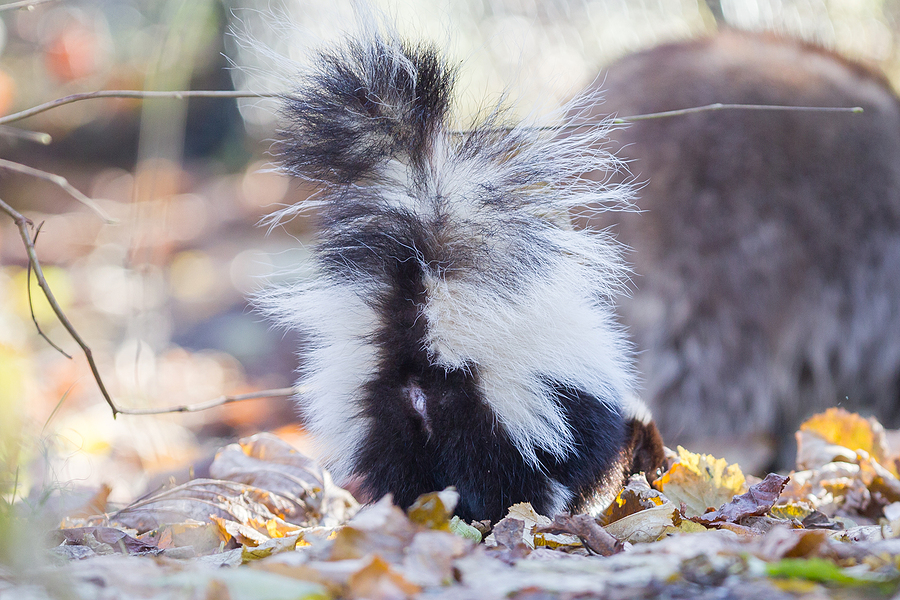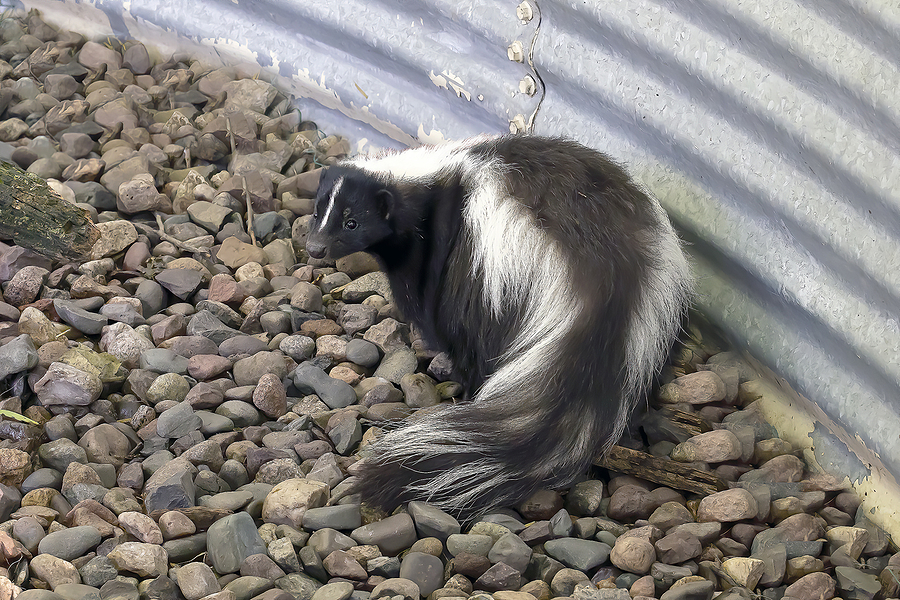Accidents happen, and if your furry companion or you have had an unfortunate run-in with a skunk, you’re probably wondering how to rid yourself of that infamously pungent odor. Skunk spray removal can feel overwhelming, not only because of the stink but also because the spray itself is notoriously stubborn to eliminate.
Whether you’re a pet owner, wildlife control seeker, or just someone caught off guard by a skunk, this step-by-step guide will walk you through understanding, addressing, and preventing skunk spray issues. By the end, you’ll not only know how to combat the odor but also how to keep future encounters at bay.

Understanding Skunk Spray and Odor
What is Skunk Spray?
Skunk spray is a sulfur-based compound made of thiols and thioacetates, chemicals famous for their strong, lingering odor. Thiols are immediately noticeable, while thioacetates become more potent over time, ensuring that the smell intensifies when exposed to water or moisture. This chemical makeup is why the stench is so persistent and challenging to fully eliminate without proper treatment.
Why is it so Difficult to Remove?
The molecules in skunk spray are hydrophobic, meaning they don’t mix well with water. Simply washing off skunk spray with soap and water won’t work. Instead, it requires breaking down the thiols using specific chemical reactions, which we’ll discuss in the remedies section.
Immediate Steps to Take After Being Sprayed by a Skunk
If Your Pet is Sprayed
Time is crucial. The longer the spray sits, the harder it is to remove. Follow these steps right away:
- Keep Them Outside: Prevent the odor from spreading indoors by keeping your pet outside.
- Wear Gloves: Skunk spray can transfer to your skin, so protect yourself.
- Check Their Eyes: Skunk spray can irritate pets’ eyes. If they appear red or watery, rinse them gently with clean water or saline solution.
- Prepare a Solution: Make a skunk odor removal concoction (details below) to neutralize the spray before bathing your pet.
If You Are Sprayed
- Step outdoors immediately remove affected clothing and keep it outside to prevent spreading the smell.
- Flush your eyes if necessary, similar to how you would for pets.
- Start the cleaning process quickly with effective remedies to neutralize odor.
Why Acting Quickly Matters
Skunk spray adheres to fur, fabric, and skin quickly, and without immediate action, the odor will only worsen. By reacting promptly, you can limit its spread and improve your chances of completely removing the smell.
Home Remedies and Store-Bought Products for Skunk Odor Removal
Effective Home Remedies
The following solutions are widely recommended for their effectiveness against skunk spray odor:
1. Baking Soda & Hydrogen Peroxide Solution
Ingredients:
- 4 cups of hydrogen peroxide (3%)
- 1/4 cup of baking soda
- 1 teaspoon of liquid dish soap
Instructions:
Mix the ingredients in an open container and apply immediately to the affected areas (avoid the eyes). Leave it on for 5–10 minutes, then rinse thoroughly with water. Avoid storing this mixture as it can produce gas and potentially explode.
- Pros: Fast-acting and inexpensive.
- Cons: Can dry out fur and skin if left on too long.
2. White Vinegar Solution
Mix equal parts of white vinegar and water, then apply to the affected area. Rinse well.
- Pros: Safe for pets’ skin.
- Cons: Less effective on extreme odors.
3. Tomato Juice Myth
While some believe tomato juice masks odors, it doesn’t break down the thiols. Use it as a last resort to minimize odor temporarily.
Commercial Skunk Odor Removal Products
Several products are specifically designed for skunk odor removal. Some of the best include:
1. Nature’s Miracle Skunk Odor Remover
- Pros: Pet-safe, enzymatic formula designed for breaking down skunk spray.
- Cons: Higher cost.
2. Skunk-Off®
Highly rated for effectiveness on both pets and clothing.
- Pros: Quick and easy application.
- Cons: May require multiple applications for severe sprays.
3. Thornell Skunk Odor Eliminator
A professional-grade product often used by veterinarians.
- Pros: Strong formula designed for stubborn odors.
- Cons: Can be harsh on certain fabrics.
Choosing the Right Remedy
For immediate DIY solutions, the baking soda and hydrogen peroxide mixture is the most reliable. However, for pets with sensitive skin or fur, consider commercial products specially formulated for animal safety.
Professional Skunk Control and Removal Services
When Should You Call a Professional?
If skunks frequently visit your property, it might be time to contact a professional skunk removal service. Experts not only remove skunks humanely but also identify entry points and risky areas that need fortification.
Benefits of Professional Services
- Safe and Humane Practices: Many reputable services use live traps to relocate skunks without harming them.
- Long-Term Solutions: Professionals can introduce deterrence strategies to reduce future encounters.
Finding a Reputable Service
- Look for providers specializing in wildlife control or skunk control and check their reviews.
- Ensure they follow humane practices in compliance with local regulations.
Preventing Future Encounters
Tips to Skunk-Proof Your Property
- Eliminate Food Sources: Secure garbage bins and remove outdoor pet food.
- Seal Holes and Entry Points: Skunks often shelter under decks or sheds. Use metal mesh to block access points.
- Use Skunk Deterrents: Sprinkle natural deterrents (like cayenne pepper or citrus peels) around your yard. Commercial skunk repellents are also effective for larger areas.
- Install Motion-Activated Lights: Skunks are nocturnal and avoid well-lit areas.
Building Awareness
Educating your family and neighbors on spotting early signs of skunks can go a long way in preventing problems. So be sure to spread the word!
In Summary
Dealing with skunk spray may seem daunting, but understanding the science behind it and acting quickly can make all the difference. Whether it’s your pet, yourself, or your property that’s been affected, the right steps and products can help you rid yourself of the smell and prevent future encounters.
At the same time, if skunks are a recurring issue, don’t hesitate to call in professional wildlife control services for long-term solutions. The goal is not just to eliminate the smell but also to create a safer and cleaner environment for you, your pets, and your neighbors.
Got a skunk-related question or need expert help? Reach out to a local skunk removal service today! Contact Budget Animal Removal at 317-875-3099 for DNR licensed and insured skunk removal and control in Indianapolis and its surrounding counties. Request a free estimate or advice, today!
Related Posts:
Trashcan Tactics: Preventing Raccoons, Skunks, and More from Raiding Your Bins
Smell No More: Your Comprehensive Guide to Skunk Removal
Are Skunks Dangerous?

